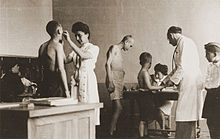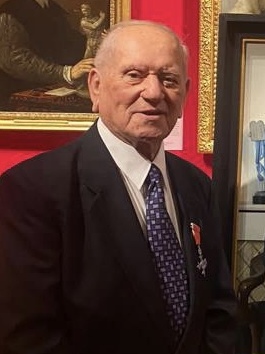
Arek Hersh, is a survivor of the Holocaust.

Holocaust (1978) is an American television miniseries which aired on NBC over five nights, from April 16–20, 1978.

Robert Clary was a French actor who was mainly active in the United States. He is best known for his role as Corporal Louis LeBeau on the television sitcom Hogan's Heroes (1965–1971). He also had recurring roles on the soap operas Days of Our Lives (1972–1987), and The Bold and the Beautiful (1990–1992).
The Holocaust has been a prominent subject of art and literature throughout the second half of the twentieth century. There is a wide range of ways–including dance, film, literature, music, and television–in which the Holocaust has been represented in the arts and popular culture.
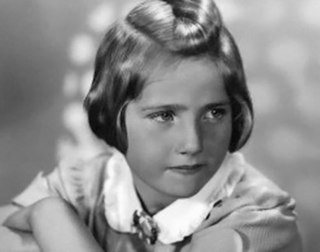
Hanička "Hana" Brady was a Czechoslovak Jewish girl murdered in the gas chambers at German concentration camp at Auschwitz, located in the occupied territory of Poland, during the Holocaust. She is the subject of the 2002 non-fiction children's book Hana's Suitcase, written by Karen Levine.
Holocaust survivors are people who survived the Holocaust, defined as the persecution and attempted annihilation of the Jews by Nazi Germany and its allies before and during World War II in Europe and North Africa. There is no universally accepted definition of the term, and it has been applied variously to Jews who survived the war in German-occupied Europe or other Axis territories, as well as to those who fled to Allied and neutral countries before or during the war. In some cases, non-Jews who also experienced collective persecution under the Nazi regime are considered Holocaust survivors as well. The definition has evolved over time.
The One Thousand Children (OTC) is a designation, created in 2000, which is used to refer to the approximately 1,400 Jewish children who were rescued from Nazi Germany and other Nazi-occupied or threatened European countries, and who were taken directly to the United States during the period 1934–1945. The phrase "One Thousand Children" only refers to those children who came unaccompanied and left their parents behind back in Europe. In nearly all cases, their parents were not able to escape with their children, because they could not get the necessary visas among other reasons. Later, nearly all these parents were murdered by the Nazis.

Sir Benjamin "Ben" Helfgott was a Polish-born British Holocaust survivor, Olympian and champion weightlifter. He was one of two Jewish athletes known to have competed in the Olympics after surviving the Holocaust, along with Alfred Nakache, a French champion swimmer and water polo player. Helfgott spent his adult life promoting Holocaust education, meeting with national leaders in the UK to promote cultural integration and peace.

Goodbye Holland is a 2004 documentary about the extermination of Dutch Jews during World War II. The film debunks the accepted notion that the Dutch were 'good' during the war, exposing how Dutch police and civil servants helped the German occupying regime implement massive deportations, which resulted in the death of 78 percent of the Jews in the Netherlands.
Josef Perl was a Holocaust survivor who dedicated twenty years of his life to educating people about the Holocaust. He was born in Czechoslovakia and later lived in Bushey, Hertfordshire, England. He received more than 30,000 letters from schoolchildren to whom he spoke about his experiences.

The Buchenwald Resistance was a resistance group of prisoners at Buchenwald concentration camp. It involved Communists, Social Democrats, and people affiliated with other political parties, unaffiliated people, Christians, Jews, and Muslims. Because Buchenwald prisoners came from a number of countries, the Resistance was also international. Members tried to sabotage Nazi efforts where they could, worked to save the lives of child inmates, and in the last days of the camp, with many Nazis fleeing the approaching allied troops, tried to gain control of the camp itself. After liberation, the prisoners documented their experiences on paper and formed an international committee to look after the welfare of survivors.
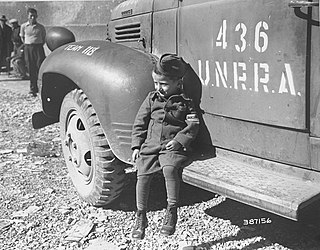
Joseph Schleifstein is a Polish-born American who survived the Buchenwald concentration camp during the Holocaust at the age of four. He was hidden by his father in a large sack, enabling him to avoid detection by SS guards when arriving at the camp. Other prisoners helped his father keep him hidden, and Schleifstein survived until the Americans liberated the camp. After World War II, Schleifstein and his parents emigrated to the United States. He did not discuss his wartime experiences for decades, even with his children. His case gained publicity in 1999 with the anniversary of the 1997 movie Life is Beautiful; it was discovered Schleifstein's story was an inspiration for the script. This led to a search for him and an eventual newspaper interview.

Thomas Geve was a German-born engineer, author and Jewish Holocaust survivor.
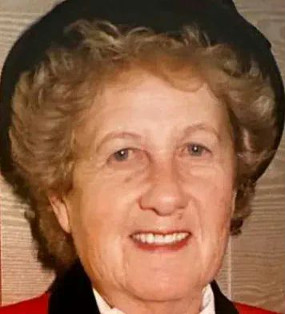
Judith Hemmendinger was a German-born Israeli researcher and author who specialised in child survivors of the Holocaust. During World War II, she was a social worker and refugee counselor for the Œuvre de secours aux enfants (OSE), a French Jewish children's aid organization based in Geneva, and from 1945 to 1947, she directed a home for child survivors of Buchenwald in France. She authored books and papers on the Holocaust experiences and later lives of child survivors. She was awarded the French Legion of Honor in 2003.
Romek “Robbie” Waisman is a Polish-Canadian educator and active member of the Holocaust survivor community in Canada. In 1944, he was interned at the Buchenwald concentration camp and forged strong relationships with the other children imprisoned there. After the war, he briefly lived in France, where he studied and came to terms with his new life as a war orphan.

Henri Kichka was a Belgian writer and Holocaust survivor who was one of the leading figures in Holocaust education in Belgium. Kichka was the only member of his family to have survived the deportation of Belgian Jews to camps in Central and Eastern Europe. He began speaking on the importance of the memory of those who perished at the hands of the Nazis in the 1980s and spoke widely on his experiences to school audience. In 2005, published his autobiography, Une adolescence perdue dans la nuit des camps with a preface by the French historian Serge Klarsfeld. He is the father of cartoonist Michel Kichka.

Meisjeshuis is a former children's home located at Albert Grisarstraat in Antwerp, Belgium. Throughout the years it has also been known as Adolf Stappaertsgasthuis and Algemeen Kinderziekenhuis Good-Engels.

Fred Jeruzalski Kader was a Belgian retired pediatric neurologist, Holocaust survivor and educator in the region of Omaha, Nebraska.
Route to Paradise is a 2020 British short documentary film written, produced and directed by Thomas Gardner. The film follows a team of archaeologists from Staffordshire University as they attempt to uncover the former Calgarth Estate, the site where 300 Jewish children were re-located to after being liberated from Nazi Germany's concentration camps during the Holocaust.
Ben Stern was a Polish Holocaust survivor, activist, and author.

